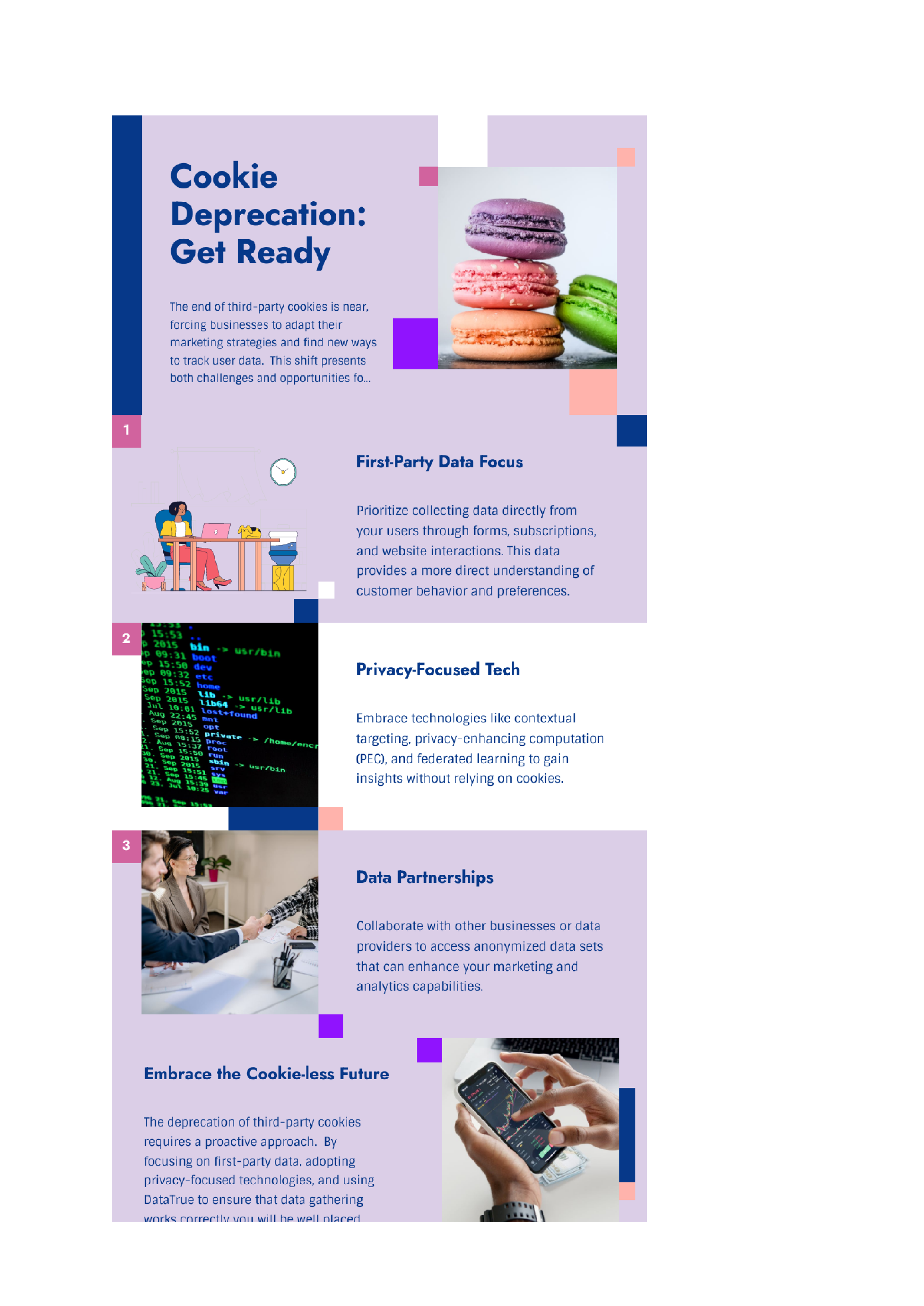Understanding the Shift
Third-party cookies have been instrumental in enabling businesses to track user behaviour across different websites, facilitating targeted advertising and personalized user experiences. However, their deprecation underscores a broader industry move towards enhancing user privacy and data protection. This transition challenges businesses to find new ways to collect and utilize data without compromising on compliance and user trust.
Preparing for Third-Party Cookie Deprecation
1.Invest in First-Party Data
The deprecation of third-party cookies elevates the importance of first-party data. Businesses should focus on collecting data directly from their interactions with customers, such as website visits, app usage, and direct purchases. This data is not only more reliable and relevant but also fully under the business’s control, making it a valuable asset for personalized marketing and customer engagement.
2.Diversify Data Collection and Marketing Strategies
Relying solely on cookie-based tracking is no longer viable. Businesses should explore and invest in a mix of data collection and marketing strategies, including content marketing, email marketing, and social media engagement. These channels offer alternative ways to gather insights into customer preferences and behaviors while fostering direct relationships with the audience.

3.Embrace Privacy-Focused Tracking Technologies
As the industry shifts away from third-party cookies, new technologies and standards are emerging to fill the gap. Solutions like Google’s Privacy Sandbox and Unified ID 2.0 offer privacy-preserving mechanisms for tracking and targeting. Businesses should stay informed about these developments and consider integrating compatible technologies into their digital strategies.
4.Enhance Data Privacy and Transparency
Building trust with customers is paramount, especially in a privacy-conscious world. Businesses should ensure their data collection practices are transparent and compliant with data protection regulations like GDPR and CCPA. This includes obtaining explicit consent for data collection and providing clear information about how data is used.
Leveraging Datatrue to Navigate the Transition
Datatrue offers a suite of tools designed to help businesses adapt to the deprecation of third-party cookies while ensuring compliance and data integrity. Here are some tips for using Datatrue effectively:
- Automate Cookie Audits
Use Datatrue to automate the auditing of your website’s cookies, ensuring that all data collection is compliant with user consents and privacy regulations.
Get your initial third party cookie audit free from DataTrue 👍 link https://datatrue.com/en/free-3rd-party-cookie-audit/
- Monitor Data Collection in Real-Time
Leverage Datatrue’s real-time monitoring capabilities to detect and address any privacy leaks or non-compliant data collection practices promptly.
- Customize Data Collection Policies
With Datatrue, you can customize data collection policies to align with your business needs and regulatory requirements, ensuring that your first-party data strategy is both effective and compliant.
- Utilize Expert Support
Take advantage of Datatrue’s expert support and guidance to navigate the complexities of privacy regulations and the technical aspects of transitioning away from third-party cookies.
- Enhance First-Party Data Analysis
Employ Datatrue’s analytics tools to derive actionable insights from your first-party data, enabling more targeted and personalized marketing strategies.
In conclusion, the deprecation of third-party cookies presents both challenges and opportunities for businesses. By focusing on first-party data, diversifying marketing strategies, embracing new technologies, and enhancing data privacy, businesses can navigate this transition successfully. Datatrue stands out as a valuable partner in this journey, offering the tools and expertise needed to adapt to a cookieless future while maintaining compliance and customer trust.
